Dear friends,
This week, I found myself rediscovering the work of Dietrich Bonhoeffer. As many of you will know, Bonhoeffer was one of the most influential theologians of the twentieth century. He was a German Lutheran pastor and theologian who came to prominence during the Second World War and was a key member of the Confessing Church: a movement within Protestant Germany to oppose Nazism. A widely known activist and teacher, Bonhoeffer was eventually imprisoned for his involvement in a plot against Hitler. He was sent to Tegal Prison, and then Flossenbürg concentration camp where he was executed on 9th April 1945, days before the camp’s liberation.
Bonhoeffer’s writing came up at our Wednesday Group this past week. During our discussion, Fr. Robert, our Rector Emeritus, cited one of Bonhoeffer’s most famous books, The Cost of Discipleship, and in particular the difference between cheap and costly grace. Cheap grace, for example, makes no demands on us, and so prevents us from fully engaging with complexity and truth. It is a way of thinking about grace as something which comes easily and doesn’t require us to change anything about our lives or habits. Costly grace, on the other hand, makes demands on us; it is a form of grace which requires us to reckon with those things which prevent us living more fully into our relationship with God. This means being okay with making mistakes, making sacrifices, and accepting our calling even when it's tough.
While this may seem an intense way to start a weekly email, I find that there is also something very subtle, familiar, and reassuring to note in these ideas. Indeed, the difference between cheap and costly grace can also be found in Bonhoeffer’s less intense though equally profound book, Life Together. I first read this book as a student in theological college, and it has guided much of my thinking about faith ever since. In this book, Bonhoeffer considers what it means for everyday Christian communities, such as parishes and religious houses, to be places of true spiritual transformation. He argues that it is the Church, globally but also locally, which is the focal point of Christian ethics and the heart of the Body of Christ. Thus, it is in the very fabric of our lives, as we live together, and then interweave our experience with scripture and worship, that we encounter God in our midst. In academic circles, theologians often refer to this kind of thinking as “narrative theology,” where the very threading of stories and scripture in the context of community shapes our Christian life.
This may, in the end, seem like a simple thing to note at the start of a new week, and it is something which, in my mere two months here, I have spoken about quite a lot already. But I find myself repeatedly coming back to this idea in these early days with you. For I think that what makes a parish church community one of the most profound places to be is that, as Bonhoeffer notes, it is a place where we are constantly reminded to avoid that all-too-easy option to “pray for the big things and forget to give thanks for the ordinary, small (and yet really not small) gifts.”
When I said last week that I want you to share whatever is important to you, I meant it. It’s the only way we learn and build trust, and the only way we learn what it means to experience grace.
Thank you for reading!
Yours in Christ,
Father Ed.

